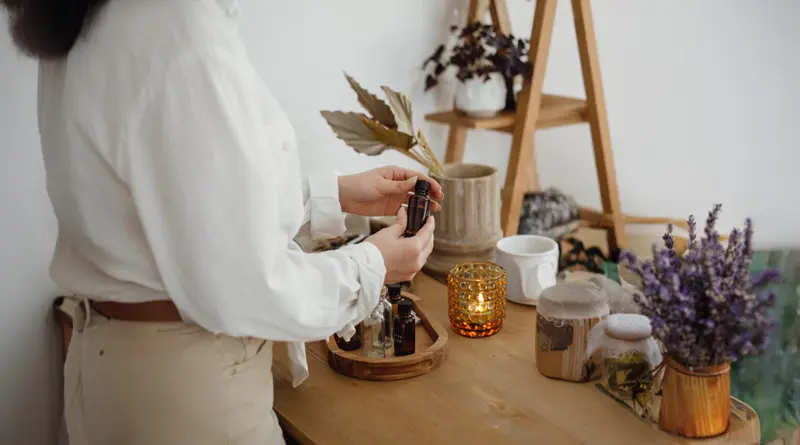Aromatherapy, the practice of using essential oils for therapeutic benefits, has been cherished for centuries across various cultures. This holistic healing treatment uses natural plant extracts to promote health and well-being. From reducing stress and anxiety to improving sleep and boosting mood, aromatherapy offers a myriad of benefits. If you’re new to aromatherapy or looking to enhance your practice, here are some tips to help you get the most out of this aromatic experience.
1. Choose High-Quality Essential Oils
The quality of essential oils is crucial for effective aromatherapy. Look for oils that are 100% pure, organic, and free from additives or synthetic ingredients. Reputable brands often provide information about the sourcing and production of their oils, ensuring you receive the best quality. High-quality oils not only smell better but also provide more potent therapeutic benefits.

2. Understand the Properties of Different Oils
Each essential oil has unique properties and benefits. For example, lavender is known for its calming and relaxing effects, making it ideal for reducing stress and promoting sleep. Peppermint, on the other hand, is invigorating and can help boost energy and concentration. Eucalyptus is excellent for respiratory issues and congestion. Understanding the properties of different oils allows you to choose the right one for your specific needs.

3. Use a Diffuser
A diffuser is an effective way to disperse essential oils into the air, creating a calming and aromatic environment. There are various types of diffusers, including ultrasonic, nebulizing, and evaporative diffusers. Ultrasonic diffusers are popular because they use water to disperse the oils, adding moisture to the air, which can be beneficial in dry environments. Follow the manufacturer’s instructions for proper use and maintenance to ensure your diffuser works efficiently.

4. Try Topical Application
In addition to diffusing, essential oils can be applied topically to the skin. However, it’s important to dilute them with a carrier oil, such as coconut, jojoba, or almond oil, to prevent skin irritation. A common dilution ratio is 3-5 drops of essential oil per tablespoon of carrier oil. Popular areas for application include the wrists, temples, and soles of the feet. Always perform a patch test before applying a new oil to a larger area of your skin.

5. Incorporate Aromatherapy into Your Routine
Make aromatherapy a part of your daily routine to enjoy its benefits consistently. For instance, you can add a few drops of lavender oil to your bath for a relaxing soak, use eucalyptus oil in the shower to clear congestion, or apply peppermint oil to your temples for a mid-afternoon energy boost. Incorporating aromatherapy into your bedtime routine can also improve sleep quality and help you unwind after a long day.

6. Create Custom Blends
Experimenting with different combinations of essential oils can help you create custom blends tailored to your preferences and needs. For example, a blend of lavender, chamomile, and frankincense can create a deeply relaxing atmosphere, while a mix of lemon, peppermint, and rosemary can boost energy and focus. Start with small amounts and adjust the ratios until you find the perfect blend.

7. Be Mindful of Safety
While essential oils offer numerous benefits, it’s important to use them safely. Some oils are not suitable for children, pregnant women, or individuals with certain health conditions. Always research any contraindications and consult with a healthcare professional if you have concerns. Additionally, avoid ingesting essential oils unless under the guidance of a qualified professional.

Conclusion
Aromatherapy is a versatile and enjoyable practice that can enhance your overall well-being. By choosing high-quality oils, understanding their properties, and incorporating them into your daily routine, you can unlock the full potential of this ancient healing art. Whether you’re seeking relaxation, energy, or relief from ailments, aromatherapy offers a natural and effective solution. Start your aromatic journey today and experience the transformative power of essential oils.
FAQs: Tips for Aromatherapy
1. How do I choose high-quality essential oils for aromatherapy?
Look for essential oils that are 100% pure, organic, and free from additives or synthetic ingredients. Reputable brands often provide detailed information about the sourcing and production of their oils, ensuring you receive high-quality products that offer potent therapeutic benefits.
2. What are some common essential oils and their benefits?
- Lavender: Calming and relaxing, great for reducing stress and improving sleep.
- Peppermint: Invigorating, helps boost energy and concentration.
- Eucalyptus: Excellent for respiratory issues and congestion.
- Chamomile: Soothing, aids in relaxation, and alleviates anxiety.
- Lemon: Refreshing, can uplift mood and enhance focus.
3. How do I use a diffuser for aromatherapy?
To use a diffuser, fill it with water according to the manufacturer’s instructions, add a few drops of your chosen essential oil, and turn it on. The diffuser will disperse the essential oil into the air, creating a calming and aromatic environment. Different types of diffusers include ultrasonic, nebulizing, and evaporative diffusers.
4. Can I apply essential oils directly to my skin?
Essential oils should be diluted with a carrier oil, such as coconut, jojoba, or almond oil, before applying to the skin to prevent irritation. A common dilution ratio is 3-5 drops of essential oil per tablespoon of carrier oil. Popular areas for application include the wrists, temples, and soles of the feet. Always perform a patch test before applying a new oil to a larger area of your skin.
5. Are there any safety precautions I should take when using essential oils?
Yes, it’s important to use essential oils safely. Some oils are not suitable for children, pregnant women, or individuals with certain health conditions. Always research any contraindications and consult with a healthcare professional if you have concerns. Additionally, avoid ingesting essential oils unless under the guidance of a qualified professional, and keep them out of reach of children.

